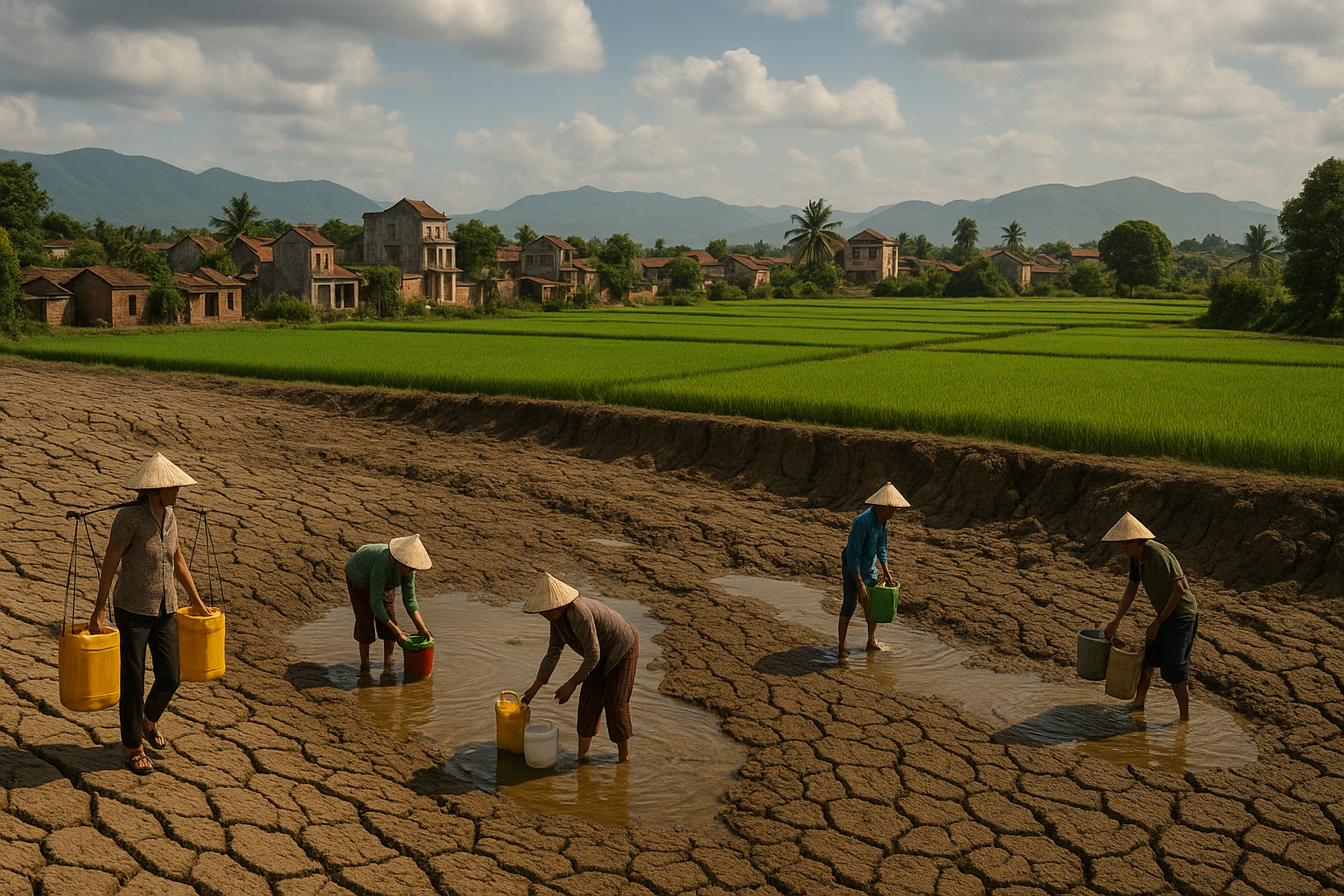World Bank Warns Vietnam: Water Insecurity Threatens Growth Without Bold Action
The World Bank and Vietnam’s Institute of Water Resources Planning warn that unsustainable use, climate change, and fragmented governance are pushing the country toward a looming water security crisis. The report urges urgent reforms in governance, irrigation, tariffs, and financing to safeguard Vietnam’s growth and resilience.

The report, produced by the World Bank in collaboration with the Institute of Water Resources Planning in Vietnam, delivers a sobering yet urgent narrative about the nation’s shifting relationship with water. For decades, Vietnam was considered a water-rich country, with its sprawling river systems and fertile deltas providing a solid foundation for agriculture, hydropower, and urban development. Today, however, the story is dramatically different. As the report clearly states, water has become a significant constraint on the country’s economic growth. It is not just a resource issue but a national development challenge that spans food security, energy stability, industrial expansion, and social equity. Vietnam’s aspiration to reach high-income status could falter unless water governance and management are fundamentally reformed.
A System Under Strain
The findings paint a picture of overuse, inefficiency, and environmental stress. Agriculture remains the biggest consumer of water, accounting for more than 70 percent of withdrawals, yet irrigation is outdated and wasteful. The Mekong Delta, which has long been Vietnam’s rice bowl, is now suffering from saline intrusion and unpredictable flows that undermine crop yields. Hydropower, once seen as a backbone of energy generation, is becoming less reliable as rainfall patterns shift, eroding its dependability. Meanwhile, urban areas like Hanoi and Ho Chi Minh City are straining under the dual pressures of rising demand and severe pollution from untreated wastewater. The cumulative effect is a water system under severe stress, where competing demands increasingly clash and long-standing inefficiencies are exposed.
Fragmented Governance and Institutional Gridlock
At the heart of Vietnam’s water challenge lies a governance structure riddled with overlaps and silos. The Ministry of Agriculture and Rural Development, the Ministry of Natural Resources and Environment, and the Ministry of Construction all play major roles in managing different aspects of water, yet coordination among them is minimal. The result is fragmented planning that often pulls in contradictory directions. For example, industrial estate expansion in the north, designed to stimulate economic growth, simultaneously degrades the water sources that nearby cities depend on for drinking water. The report is frank in its assessment: reform is not stymied by ignorance, but by entrenched interests, bureaucratic inertia, and budgetary constraints that make bold action politically and institutionally difficult. This institutional gridlock, if left unaddressed, will prevent the kind of integrated management Vietnam needs to navigate growing scarcity.
Data-Driven Warnings and Global Lessons
The report grounds its warnings in stark numbers and projections. Charts and tables throughout illustrate how water demand is rising steeply while renewable supply stagnates. By 2030, major river basins such as the Red River and Dong Nai will face demand that outpaces available resources, creating potential hotspots of scarcity. A graphic on page 27 draws particular attention, showing the widening gap between demand and supply under climate stress. Another model highlights the Mekong’s vulnerability, projecting drastic reductions in dry-season flows that jeopardize agriculture and hydropower alike. To provide context, the report draws on international experiences. Israel’s successful wastewater reuse, China’s basin-wide authorities, and Australia’s drought planning are highlighted as examples of how nations have turned crises into opportunities. Still, the study cautions against one-size-fits-all approaches, stressing that reforms must be adapted to Vietnam’s specific political economy and social realities.
Pathways Toward Reform
While the diagnosis is grim, the report is equally detailed in its prescriptions. It recommends establishing basin-level authorities with the power to coordinate across ministries and sectors, ensuring that water management decisions are made holistically rather than piecemeal. Reforming tariffs is presented as essential to balance cost recovery and social equity, though politically sensitive. Without realistic pricing, Vietnam cannot finance the infrastructure upgrades and maintenance required to secure supply. The adoption of modern irrigation techniques, such as drip and sprinkler systems, is flagged as both feasible and urgent, while cities must invest in advanced wastewater treatment to safeguard public health and river systems. Financing looms large in the report’s analysis: existing budgetary allocations fall far short of needs, making blended finance, combining state funds, private investment, and international climate finance, an imperative. Each of these pathways requires political will, public engagement, and a willingness to disrupt long-standing patterns of inefficiency.
A Call for Urgent Action
Vietnam is not yet locked into a water crisis, but the clock is ticking. Delayed action will compound risks, undermining food security, destabilizing energy systems, and widening social inequities. The nation’s path toward high-income status could be derailed if water is not placed at the center of development planning. Yet the tone is not fatalistic. Instead, it calls for courage and vision, noting that Vietnam has strong institutions, engaged citizens, and active international partners. These assets can be leveraged to implement reforms that transform water from a looming liability into a foundation for resilience and prosperity. The authors leave no doubt: safeguarding Vietnam’s future requires seeing water not as a sectoral problem but as the lifeblood of the country’s development journey.
- READ MORE ON:
- World Bank
- Vietnam
- hydropower
- urban development
- Mekong Delta
- wastewater
ALSO READ
Vietnam's Credit Database Breach: A Cybersecurity Threat Unfolding
Vietnam Faces Cybersecurity Breach as Hackers Target National Credit Database
World Bank Warns Climate Change Could Cut Uganda’s Growth by 3.1% by 2050
World Bank: Côte d’Ivoire Growth Strong, Needs Tax Reform to Cut Poverty
Sri Lanka, World Bank Launch $100m Project to Boost Farming and Climate Resilience










